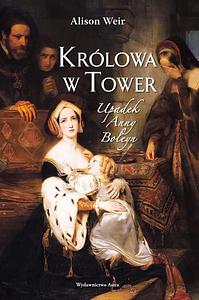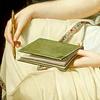Take a photo of a barcode or cover
informative
reflective
slow-paced
Very detailed, and gives what appears to be a fair look at many different contemporary, historical, and modern sources that make claims about the facts in Anne Boleyn’s case. Weir decidedly gives her own conclusions throughout the book, but readers can still pretty much draw their own through the sources cited. Anyway I love Anne Boleyn.
emotional
informative
sad
medium-paced
informative
The Early-Modern period is a fascinating era of history, encompassing the Renaissance, the Reformation, and the Counter-Reformation, as well as various waves of witch trials throughout Europe and beyond. People were killing one another over what today, in most of Europe at least, would be considered minor points of Christian theological doctrine.
The Tudor era in England is an interesting study, simply because the reign of the Tudor monarchs occurred while Europe was in the midst of this religious turmoil, and life at court was a battle of wits between various religious factions, it being impossible to separate religion from the affairs of state at that time. As a courtier, if you weren't quick witted or took the wrong side, there was a good chance you could lose your head, or worse (and yes, beheading was considered the humane form of execution at that time, and was reserved for those the monarch felt deserved some consideration in relation to their manner of demise).
Everybody knows at least the bare outline of Henry VIII's life, but not a huge amount is known about his wives, regardless of dramatic representations in various films and TV serious over the last number of years, which are of varying historical accuracy. Anne Boleyn is a fascinating figure in many ways. Her formative years were spent at the French court, which meant that when she arrived back in England and became a lady-in-waiting to Catherine of Aragon, she was cultured and socially sophisticated. She became known for her quick wit and intellect at court. When she captured the attention of King Henry, he had already had Anne's sister Mary as a mistress (there are rumours that Mary Boleyn's children were fathered by Henry VIII, but these are unsubstantiated).
If you're brought up Catholic, it is second nature for your sympathies to be fully with Catherine of Aragon. She had borne Henry a daughter, who later became Queen Mary, then had many miscarriages, and was essentially discarded when it became apparent that she would not produce a male heir. The marriage between Catherine and Henry was annulled with the cooperation of key individuals at court, causing a major diplomatic crisis throughout Europe. At least, however, Catherine escaped the episode with her life. Sir Thomas More, who refused to acknowledge Henry as supreme head of the Church of England, was not so lucky.
There is much to dislike about Anne Boleyn, including the triumphant celebrations she enthusiastically participated in on the eventual death of Catherine of Aragon. Despite this, Weir does a good job of portraying Boleyn's vulnerability. The truth is, any young woman married to Henry VIII was inherently vulnerable, and Anne seems to have been blissfully unaware until close to the end of her life that she was in above her head (no pun originally intended here). Despite her wit and intelligence, she seems to have lacked the guile and discretion necessary to protect herself from dangerous schemers in court. Thomas Cromwell and his cronies were extremely keen to have Anne and her faction neutralized, and when, like Catherine of Aragon, Anne failed to produce a male heir, this helped their cause.
We cannot really know for sure if there was any truth, or partial truth, to the numerous charges brought against Anne Boleyn. By the standards of our time, trials for treason in the 16th century were kangaroo courts, and the jury was packed with people who were known supporters of Cromwell's faction. Among the charges were adultery with several men, and a confession was obtained from a lowly court musician under torture, while the remaining men vigorously denied the charges. These included her own brother, George, with a charge of incest thrown in for good measure.
There are some vivid descriptions of Anne's internment in the Tower of London in the book that evoke sympathy for her and a certain admiration. It seems she handled her fate with an element of grace and dignity, and it's clear that her strong religious faith had a large part to play in this. Ironically, the daughter she had with Henry VIII was to become one of the longest reigning and most successful monarchs England, and indeed Europe, has ever seen, which is no mean feat for a woman existing in the 16th century, when women and power did not typically mix well.
The routine dehumanization of women is illustrated in the writings of Eustace Chapuys, a Spanish diplomat at the Tudor court, whose writings about Anne are vivid and detailed. His letters to the King of Spain regularly refer to Anne as 'the concubine' and 'the great whore'. Granted, this hostility was largely due to support for Catherine of Aragon, but it also illustrates the dangers involved in being a woman of influence at this time. Anne's daughter, who became Queen Elizabeth I, would have had by necessity a certain tactical genius and deep intelligence to have survived as a female monarch so successfully.
Even in her disgrace, Henry VIII thought well enough of Anne to send for an expert exectioner from France to perform her beheading. The descriptions of the deed itself show that this high-end executioner, as it were, had a certain expertise in making the experience as painless as possible for the individual. Anne would not have known that the sword was coming down on her when it did.
It would be easy to look back and thank our lucky stars that such barbaric acts no longer occur, but unfortunately, they do still occur in certain parts of the world. However, reading this book does put all the silly disputes about 'Megxit' and tell-all interviews with Oprah in a certain perspective. This is a poignant and, at times, riveting book, which uses primary sources effectively to evoke the tumultuous atmosphere of the Tudor era. For those interested in what life was like for women in the still heavily patriarchal Europe at that time, or in history generally, it is a fascinating book.
The Tudor era in England is an interesting study, simply because the reign of the Tudor monarchs occurred while Europe was in the midst of this religious turmoil, and life at court was a battle of wits between various religious factions, it being impossible to separate religion from the affairs of state at that time. As a courtier, if you weren't quick witted or took the wrong side, there was a good chance you could lose your head, or worse (and yes, beheading was considered the humane form of execution at that time, and was reserved for those the monarch felt deserved some consideration in relation to their manner of demise).
Everybody knows at least the bare outline of Henry VIII's life, but not a huge amount is known about his wives, regardless of dramatic representations in various films and TV serious over the last number of years, which are of varying historical accuracy. Anne Boleyn is a fascinating figure in many ways. Her formative years were spent at the French court, which meant that when she arrived back in England and became a lady-in-waiting to Catherine of Aragon, she was cultured and socially sophisticated. She became known for her quick wit and intellect at court. When she captured the attention of King Henry, he had already had Anne's sister Mary as a mistress (there are rumours that Mary Boleyn's children were fathered by Henry VIII, but these are unsubstantiated).
If you're brought up Catholic, it is second nature for your sympathies to be fully with Catherine of Aragon. She had borne Henry a daughter, who later became Queen Mary, then had many miscarriages, and was essentially discarded when it became apparent that she would not produce a male heir. The marriage between Catherine and Henry was annulled with the cooperation of key individuals at court, causing a major diplomatic crisis throughout Europe. At least, however, Catherine escaped the episode with her life. Sir Thomas More, who refused to acknowledge Henry as supreme head of the Church of England, was not so lucky.
There is much to dislike about Anne Boleyn, including the triumphant celebrations she enthusiastically participated in on the eventual death of Catherine of Aragon. Despite this, Weir does a good job of portraying Boleyn's vulnerability. The truth is, any young woman married to Henry VIII was inherently vulnerable, and Anne seems to have been blissfully unaware until close to the end of her life that she was in above her head (no pun originally intended here). Despite her wit and intelligence, she seems to have lacked the guile and discretion necessary to protect herself from dangerous schemers in court. Thomas Cromwell and his cronies were extremely keen to have Anne and her faction neutralized, and when, like Catherine of Aragon, Anne failed to produce a male heir, this helped their cause.
We cannot really know for sure if there was any truth, or partial truth, to the numerous charges brought against Anne Boleyn. By the standards of our time, trials for treason in the 16th century were kangaroo courts, and the jury was packed with people who were known supporters of Cromwell's faction. Among the charges were adultery with several men, and a confession was obtained from a lowly court musician under torture, while the remaining men vigorously denied the charges. These included her own brother, George, with a charge of incest thrown in for good measure.
There are some vivid descriptions of Anne's internment in the Tower of London in the book that evoke sympathy for her and a certain admiration. It seems she handled her fate with an element of grace and dignity, and it's clear that her strong religious faith had a large part to play in this. Ironically, the daughter she had with Henry VIII was to become one of the longest reigning and most successful monarchs England, and indeed Europe, has ever seen, which is no mean feat for a woman existing in the 16th century, when women and power did not typically mix well.
The routine dehumanization of women is illustrated in the writings of Eustace Chapuys, a Spanish diplomat at the Tudor court, whose writings about Anne are vivid and detailed. His letters to the King of Spain regularly refer to Anne as 'the concubine' and 'the great whore'. Granted, this hostility was largely due to support for Catherine of Aragon, but it also illustrates the dangers involved in being a woman of influence at this time. Anne's daughter, who became Queen Elizabeth I, would have had by necessity a certain tactical genius and deep intelligence to have survived as a female monarch so successfully.
Even in her disgrace, Henry VIII thought well enough of Anne to send for an expert exectioner from France to perform her beheading. The descriptions of the deed itself show that this high-end executioner, as it were, had a certain expertise in making the experience as painless as possible for the individual. Anne would not have known that the sword was coming down on her when it did.
It would be easy to look back and thank our lucky stars that such barbaric acts no longer occur, but unfortunately, they do still occur in certain parts of the world. However, reading this book does put all the silly disputes about 'Megxit' and tell-all interviews with Oprah in a certain perspective. This is a poignant and, at times, riveting book, which uses primary sources effectively to evoke the tumultuous atmosphere of the Tudor era. For those interested in what life was like for women in the still heavily patriarchal Europe at that time, or in history generally, it is a fascinating book.
Very interesting history of the fall of Anne Boleyn, with Weir offering several perspectives on the charges and the possible motive behind them.
dark
informative
tense
slow-paced
informative
slow-paced
Lots to mull over from this one. With the fog of centuries between the present and the event, it's impossible to know what really happened, but the author does a good job of tying together various accounts to bring about plausible suppositions. There is a lot of information here, but when you read of her final words and the stroke of the swordsman, you can't help but feel for the queen regardless of what she may or may not have been guilty of.
informative
reflective
medium-paced






